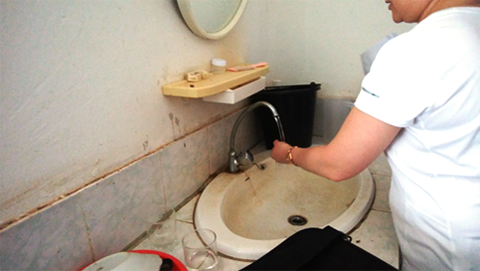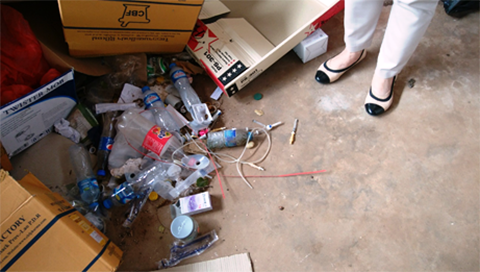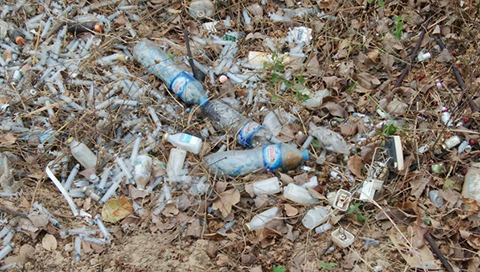Basic water, sanitation and hygiene (WASH) and health care waste management in health care facilities are important when providing quality, people-centred care. Providing safe, adequate, reliable and functioning services can reduce the risk from health care related infections, and provide a safe environment for health workers and patients seeking care.
In February 2017, WHO organised a national training to introduce the WHO and UNICEF Water and Sanitation for Health Facility Improvement Tool (WASH FIT) in Laos. WASH FIT is a risk-based management tool for improving WASH services in health care facilities as a means to improving quality of care. The methodology is adapted from the water safety plan approach and enables facilities to assess and manage risks that result from insufficient WASH in health care facilities.
This WASH FIT training was the first in Asia, involving various participants from the central, provincial and district health department, rural water supply and sanitation department, and hospitals. Seven delegates from Cambodia also participated in the training. The 4 day training included a visit to Champhone District Hospital in Savannakhet Province, where participants conducted a WASH FIT assessment. WASH FIT will be rolled out in Champhone District Hospital over the next few months.

In low- and middle-income countries, WASH services in many health care facilities are frequently absent. The findings of the first multi-country review of 54 low- and middle-income countries, conducted by WHO and UNICEF in 2015 showed that 38% of facilities lack access to improved water sources, 19% do not have improved sanitation and 35% do not have water and soap for handwashing.



Basic environmental health services such as water, sanitation and healthcare waste management in hospitals and health centres remains a serious challenge in the country. SARA showed that 76% of health centres and 43% of district hospitals have functional improved water supply and 75% of health centres and 55% district hospitals have functional improved sanitation services.
A lack of access to WASH and health care waste management often exposes health care workers, waste handlers, patients and the community to infection, toxic effects and injuries, while increasing risks of polluting the environment. Adequate WASH services are essential to minimize the risk of health care acquired infections but also for improving staff morale, patient dignity, uptake of medical services and to reduce the cost of health care.
The introduction of the WASH FIT tool will contribute to health facilities meeting the national environmental health standards for healthcare facilities and the implementation of the national regulation on healthcare waste management.
